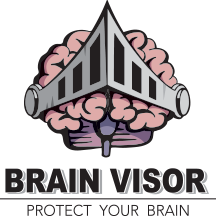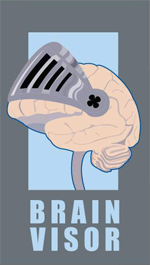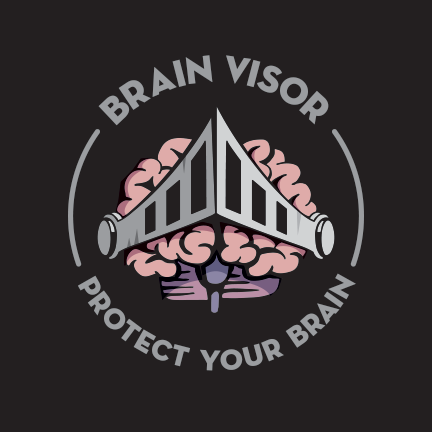Intelligence
What does it mean to be intelligent?
How intelligence is defined often depends on the orientation of the one defining it. An educator may view intelligence as the ability of an organism to adapt to the environment. A computer scientist may stress the ability to process information. One of the problems with defining intelligence is that we have been forced to view it as an abstract concept. Intelligence has not been something we can see or touch. Like much in psychology, it has only been inferred from the behavior, or performance of an individual. Psychologists, therefore, have attempted to develop accurate measures of intellectual performance. Some psychologists, however, argue that the only reliable definition of intelligence is "whatever intelligent tests test!"
Historically, cognitive activity has been consigned to a unitary single function – intelligence. This has resulted in the concept of “General Intelligence,” or in testing nomenclature – “Spearman’s g.” And, more colloquially – IQ.
In psychometric theory, ‘g’ is considered the general factor of intelligence that contributes to all cognitive activity. General intelligence (‘g’) is typically subdivided into:
Fluid Intelligence (Gf) – the capacity to think logically and solve problems in novel situations, independent of acquired knowledge.
Crystalized Intelligence (Gc) – the ability to use skills, knowledge, and experience.
Fluid and Crystalized Intelligence are correlated with each other, and most IQ tests attempt to measure both Gf and Gc, with the combination of the two scales resulting in an overall IQ score.
Multiple Intelligences
Dr. Howard Gardner, in his 1983 book, Frames of Mind, promulgated the notion that IQ is inadequate to fully describe each person’s intellectual potential. In his theory of Multiple Intelligences (MI), Dr. Gardner changes the question from, “How smart are you (IQ)? – To – “How are your smart?” For a fascinating and insightful look at MI, peruse Dr. Branton Shearer’s MIDAS web site
Your Brain and IQ
Most experts agree that every expression of intelligence is due to actions of the brain. While IQ remains an abstraction, neurologically speaking, general intelligence (‘g’) has been typically associated with the dorso-lateral prefrontal cortex, the parietal lobe, and the anterior cingulate gyrus (Parieto-Frontal Integration Theory –PFIT). It has been argued, however, that P-FIT is better associated with fluid intelligence (Fg) as crystalized intelligence (Cg) is guided by more domain-specific knowledge that is best represented in the left-hemisphere regions. Therefore, IQ might best be considered as distributed across the brain.
There are an estimated 100-1000 trillion synaptic connections in the brain! Current research suggests that more connections and stronger connections may result in more intelligent behavior. Therefore, it seems plausible that a better connected and integrated brain network that is flexible and efficient will result in higher intelligence. It is hoped that the NIH Human Connectome Project’s ambitious effort to map the neural pathways that underlie human brain function will shed light on what it means to be intelligent (as well as a multitude of brain mysteries yet to be solved!).
The following video talks are recommended for learning more about intelligence:
Dr. Howard Gardner – Multiple Intelligences
The Multiple Intelligence Theory (video)
Dr. Robert Sternberg – Successful Intelligence
Robert Sternberg Isn't Interested in Your IQ - Spartan Up Podcast (video)
The Brainwaves Video Anthology – Successful Intelligence (video)
TED TALK: James Flynn: Why our IQ levels are higher than our grandparents' (video)
Beckman Institute - The Beckman Institute for Advanced Science and Technology at the University of Illinois at Urbana-Champaign is an interdisciplinary research institute devoted to leading-edge research in the physical sciences, computation, engineering, biology, behavior, cognition, and neuroscience.
In this short YouTube video, cognitive neuroscientist Aron Barbey explores the link between general and emotional intelligence by studying Vietnam veterans with focal brain injuries. Using CT scanners and behavioral testing, Barbey hopes to create a detailed map of the brain regions that play an important role in general and emotional intellectual functioning.
Vietnam Veterans Help Neuroscientists Map Emotional Intelligence in the Brain (video)
To learn more about emotional intelligence, please watch the following video talks:
John D. Mayer and Contributors - Emotional Intelligence Information
Dedicated to communicating scientific information about emotional intelligence, including relevant aspects of emotions, cognition, and personality.
Dr. Peter Salovey – Emotional Intelligence
Part I - Dr. Peter Salovey - Yale University (video)
Part 2 - Dr. Peter Salovey - Dean of Yale University (video)
Dr. Reuven BarOn – Emotional Intelligence
Dr. Reuven BarOn - Part 1 of a 3 Part Interview (video)
Part 2 -Dr. Reuven BarOn - Emotional /Social Intelligence (video)
Part 3 - Dr. Reuven BarOn - The Best of the Three (video)
 |
BrainVisor – Protect Your BrainBrainVisor does not provide medical or psychological advice, diagnosis or treatment recommendations. The material on this site is for informational purposes only and is not a substitute for your doctor or other health care professional's care.
|
 |
||
|









